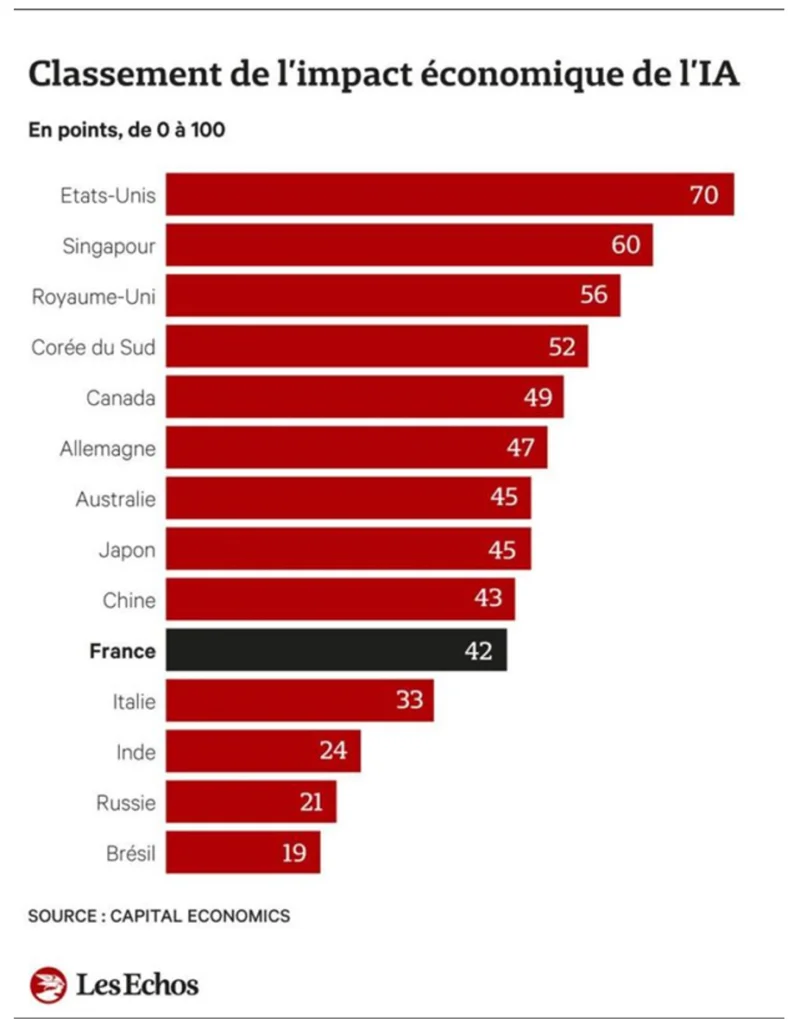The modern world is undergoing an unprecedented digital transformation. At the heart of this revolution are data science and artificial intelligence (AI) fields that are redefining the way we work, live, and interact. The public sector, as a fundamental pillar of national governance, cannot remain on the sidelines of this evolution. To continue fulfilling its missions of public interest, the sector must ride the AI wave, starting first and foremost with the training of its ambassadors: civil servants. Without trained and competent public servants, the public sector will be unable to grasp the scale of the changes brought about by AI.
If giants like Google, Amazon, Apple, or Meta dominate the global economy, it is because they invested massively and early in training their employees especially on data and AI topics. Since the 2010s, some governments have chosen to adopt the same approach, aiming to build a workforce capable of adapting to the technological shifts of the modern world.
This is notably the case in Singapore, which has made significant investments over the years in training its civil servants.
The result: Singapore is considered the second country best positioned to benefit from AI, just behind the United States, according to Capital Economics.

"AI Singapore": A Major Government Program
Singapore’s leadership in AI can largely be attributed to the “AI Singapore” (AISG) initiative launched by the government in 2017. Its main goal is to catalyze, bridge, and support AI growth across the country. To achieve this ambition, the Singaporean government built a strategy based on three key pillars:
- Partnerships with academia
- Partnerships with the private sector
- Training of civil servants
Training civil qervants : The cornerstone of “AI Singapore”
Singapore’s training strategy for its public officials is based on six key pillars:
Dedicated Training Centers : Singapore established specialized centers where civil servants can take intensive courses on AI, data science, and related technologies.
Active Collaboration with Universities : Partnerships were formed with both local and international academic institutions to create tailor-made training programs that meet the specific needs of public servants.
Continuous Learning Programs : Singapore regularly organizes workshops, seminars, and training sessions to ensure civil servants stay up to date with the latest AI advancements.
Hands-On Training : Instead of focusing solely on theory, a large part of the training emphasizes practical application. Civil servants are encouraged to work on real-world projects to understand how AI can solve concrete public sector challenges.
Online Learning Platforms : To maximize flexibility, many training modules are also available online, allowing civil servants to learn at their own pace.
International Exchange Programs : Some public servants have the opportunity to work or study abroad, learning from global best practices and seeing how AI is applied in other governmental contexts.
Why should the french public sector take inspiration from Singapore?
Although France has already begun training its public officials, the French government must accelerate its efforts to catch up and for several key reasons :
Increase Operational Efficiency : AI can help automate and optimize administrative processes, reducing delays and costs.
Improve Service Quality : AI allows for a better understanding of citizens’ needs, enabling more personalized and efficient public services.
Attract Investment : In a globalized economy, being at the forefront of tech innovation strengthens a country’s position on the international stage. France has succeeded in attracting foreign capital in recent years, and adopting AI at scale will enhance its attractiveness even further.
Conclusion
The AI Singapore initiative provides a clear roadmap on how the public sector can embrace AI and data science to improve services and meet citizens’ evolving needs. The French public sector stands to gain significantly by taking inspiration from this model investing in civil servant training and adopting a forward-thinking vision.
To support this mission, Hubadviser offers ambitious training programs for public sector actors, built upon the best practices of the AI Singapore program.

